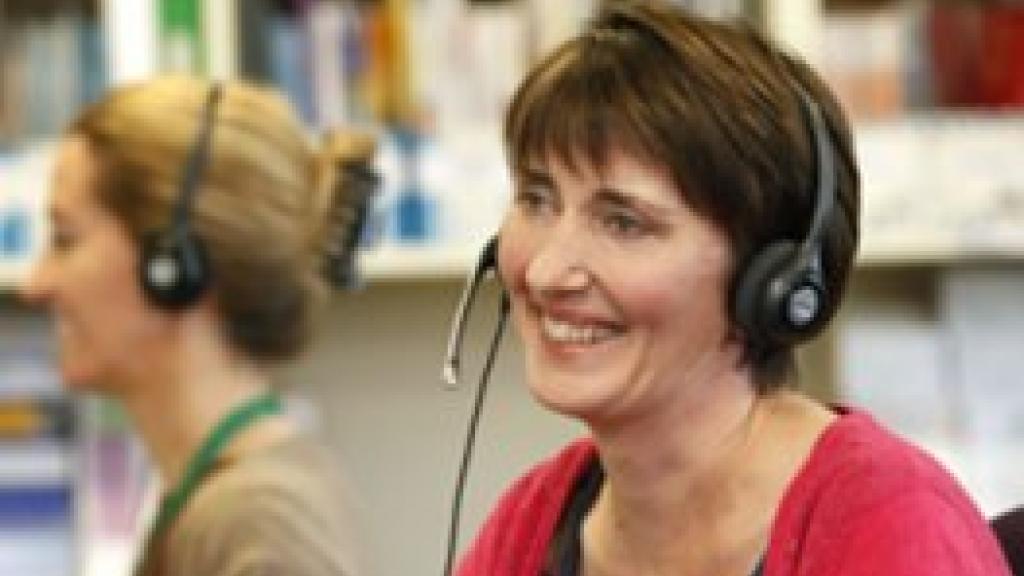
Over 82,000* Contacts with Irish Cancer Society’s Cancer Information Service in 2013
A new report into the impact and effectiveness of the Irish Cancer Society’s Cancer Information Service, which is made up of the National Cancer Helpline Freefone 1800 200 700, Daffodil Centres and online services, has been released today.
The Cancer Information Service (CIS), staffed by specialist cancer nurses, forms a core part of the work of the Irish Cancer Society. In 2013 the CIS provided information and support to over 82,000 people worried about or affected by cancer across the country.
With cancer numbers expected to increase to 40,000 cases per year by 2020, the demand for expert information, support and advice is set to grow. Access to the most up to date, clear and reliable information helps to reduce anxiety and allows patients to make informed decisions with regards to their treatment and care.
The report which was led by Professor Jonathan Drennan, Professor of Healthcare Research, University of Southampton and formerly of University College Dublin, is the largest and most in depth research of any Cancer Information Service here or internationally.
The report evaluated the impact of the CIS and identified how the service can grow and adapt to meet the growing needs of those affected by cancer.
Key findings include:
- Approximately 40% of all those contacting the CIS have or are recovering from cancer.
- 39% are contacting on behalf of a family member/or friend who has been diagnosed.
- Over 70% of all contacts are from women.
- Better engagement is needed with men, older people and those with a disability, such as the deaf community and the blind community, who may have difficulty accessing traditional services.
- Awareness levels of the Irish Cancer Society among Healthcare Professionals working in primary and secondary care are high; however they are slow to recommend the service to their patients and families.
Donal Buggy, Head of Services at the Irish Cancer Society said “Anecdotal evidence tells us that the Cancer Information Service is valued and that we are making an impact and improving lives. This report bears this out and the feedback is extremely positive with an overall satisfaction rating of 95%. We now have the evidence which will allow us to improve and develop our service to meet the challenges ahead as well as addressing the recommendations in the report. We are committed to evolving and improving in areas such as how we engage with men, disadvantaged communities, older people and non-Irish nationals.”
Mr Buggy continued, “The Irish Cancer Society’s Cancer Information Services complements and adds value to the existing cancer services in Ireland. It is therefore vital that we engage more readily with Health Care Professionals so they understand our offering and can be assured that they are directing their patients to a trusted, accredited source of support and information, delivered by a professional and expert organisation.”
The Irish Cancer Society has been developing information and support services for 50 years and is the leading provider of cancer information in Ireland. The Cancer Information Service incorporates the National Cancer Helpline (Freefone 1800 200 700; Mon–Thurs, 9am–7pm and Fri 9am–5pm), online, email and a ‘walk-in’ caller service and 12 Daffodil Centres located in major cancer hospitals throughout Ireland.
Bonnie Saiubon, a cancer survivor who used the Society’s Daffodil Centre at University Hospital Waterford said: “It came as a huge shock to me when I was diagnosed with cancer in my thirties. I visited the Daffodil Centre as soon as it opened and from then on, anytime I was in the hospital for my chemotherapy treatment I would pay a visit. The specialist cancer nurse always had plenty of time to answer any questions I might have about my treatment, to listen to my concerns and offer reassurance and support. I could call to the Daffodil Centre whenever I needed and it was invaluable to be able to talk to someone who really knew what I was going through.”
The Irish Cancer Society is currently developing an action plan in order to implement the recommendations contained in the report. Further detail will be available in 2015.
